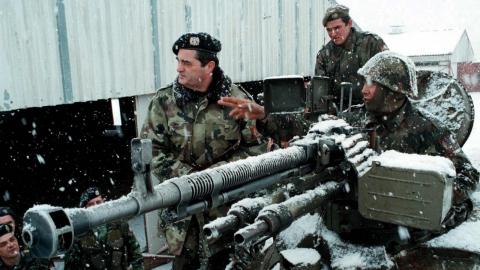Will Serbia and Kosovo Open Up Secret War Archives?

On August 2, 1998, two of Zenun Xhemajli's sons, 27-year-old Muharrem and 25-year-old Ilir, were stopped by a Serb police patrol near their village of Rracaj in Kosovo's Gjakova/Djakovica municipality and taken away. He never saw them again.
Less than a year later, on the morning of April, 27, 1999, his two younger sons, 21-year-old Shkelzen and 19-year-old Alban, were killed alongside 375 other Kosovo Albanians in a massacre in the village of Meja/Meje.
Alban's remains were found in a mass grave in the Belgrade suburb of Batajnica in 2004. But the bodies of Muharrem, Ilir and Shkelzen are still missing.
When senior officials from Serbia and Kosovo met in Brussels last month to restart dialogue aimed at normalising relations, both sides said they were ready to help the other to find the remains of people who went missing in the 1998-99 war, like Zenun Xhemajli's sons.
The Kosovo delegation asked Serbia to open up its Yugoslav-era military and police archives to help find the locations of wartime mass graves, while Serbia's delegation asked for the Kosovo Liberation Army, KLA's archives to be opened up for scrutiny.
"The Albanians demanded that all military and police archives be opened, and we said, regarding missing persons and internally displaced people, there is no problem, but you have to open the archives of the so-called KLA, so that we can see where Serbs and other non-Albanians were killed," Serbian President Aleksandar Vucic said.
But despite the rhetoric about cooperation, none of this seems likely to happen any time soon. Serbia has classified some of its military archives as state secrets, while Kosovo insists that the KLA, as a guerrilla organisation, never had military archives at all.
'There is...
- Log in to post comments
